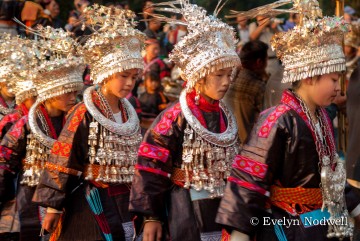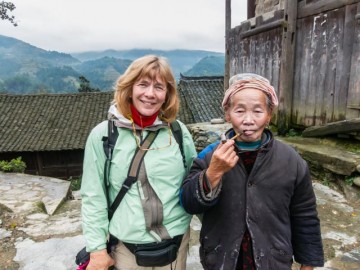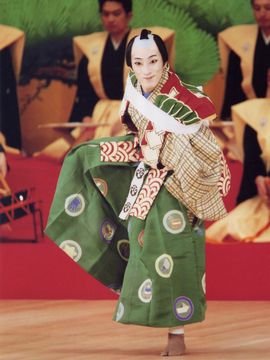In September 2006, the Irving K. Barber Learning Centre at the University of British Columbia Library announced the BC History Digitization Program. The focus of the program is to promote increased access to British Columbia’s historical resources, including providing matching funds to undertake digitization projects that will result in free online access to our unique provincial historical material. Below is a list of successful applicants for 2015.
Project Title: Images of Indigenous BC: Digitizing Historic Photos from the Museum of Anthropology Archives
Organization: Audrey & Harry Hawthorn Library & Archives (UBC Museum of Anthropology)
Amount: $13,100
Description: This project will digitize 4600 photographic images from the MOA Archives. The images will be selected from MOA General Photograph Collection and from select private funds. Formats include glass plate negatives, glass plate lantern slides, acetate and polyester negatives in a variety of sizes, 35mm slides, as well as prints. The images were taken throughout British Columbia including in remote First Nations communities and dates range from the 1890s to the 1980s with the majority concentrated in the mid-20th century. Image content includes people, community scenes and events, artistic and cultural expressions, and landscapes.
Project Title: UBC Student Radio Society Historical Audio Digitization Project
Organization: CiTR (The Student Radio Society of UBC Vancouver)
Amount: $8,854
Description: CiTR will digitize a collection of reel-to-reel audio tapes containing broadcast material from over sixty years of the Student Radio Society of UBC. Recordings include music programs, radio documentaries, public service announcements and campus and community coverage and events broadcast on CYVR/CiTR and its affiliate stations from 1949 to the late 1990s.
Project Title: Digitization of Public and Private Sector Maps and Plans
Organization: City of Vancouver Archives
Amount: $11,496.64
Description: A selection of maps and plans from the Archives’ holdings will be digitized. Images will be viewable on the Archives’ web site.
Project Title: First Metropolitan United Church Historic Photographs Digitization Project
Organization: First Metropolitan United Church Archives
Amount: $1300
Description: The First Metropolitan United Church Historical Photographs Digitization Project will share with the world the photographic record of a central protestant religious and social community over a period of one hundred and fifty years. Both traditional and radical, this congregation has served in a “cathedral” role in the province’s capital; its influence has been felt throughout the province, nationally and internationally.
Project Title: grunt Gallery Archive Development Project
Organization: grunt gallery (Visible Art Society)
Amount: $9,219
Description: To digitize material from grunt’s archives related to the practice of selected artists working in distinct communities in British Columbia.
Project Title: A Tale of Two Cities: The Love Letters of Morris Soskin of Vancouver and Rose Hyams of Montreal
Organization: Jewish Museum and Archives of British Columbia
Amount: $4,728
Description: This project is an initiative to digitize all of the Morris Soskin and Rose Hyams collection. Morris Soskin (1889/1890-1940) was a successful Vancouver lawyer. Morris met Rose Hyams (1896-1987) in Montreal at the beginning of 1921 when Morris went to Montreal to attend a Zionist meeting. They immediately fell in love and began a long-distance courtship by exchanging love letters. The love letters were all written between February and July of 1921 whereupon they were married in Montreal July 21, 1921.
Project Title: Lund Barnacle Digitization Project
Organization: Lund Community Society
Amount: $1,524
Description: The Lund Barnacle, a community newspaper published since 1988, includes local news, information and discussion of important issues, and different points of view. Hard copies of the Barnacle will be scanned by the Powell River Museum and put into PDF searchable format, and will be accessible at the LCS website.
Project Title: Vancouver Historical Costume Digitization
Organization: Museum of Vancouver
Amount: $10,000
Description: MOV holds a significant collection of Vancouver related historical costumes recognized for its quality, size, and breadth of styles and periods represented. Through the digitization of a portion of this collection (approximately 1700 pieces), MOV will increase the public’s access to this delicate and seldom seen portion of MOV’s collection.
Project Title: The Tashme Internment Experiences Project
Organization: Nikkei National Museum
Amount: $7,791
Description: This project proposes to digitize over 2000 photographs, artefacts and other items from Japanese Canadians interned at Tashme, the largest internment camp which was located near Hope, BC. This digital material will be utilized in another web-based project that will provide an in-depth history of Tashme. The digitization project focuses predominately on records and other items related to three Tashme internees as well as other photographs and important archival documents relating to Tashme.
Project Title: Prince George Newspaper Digitization Project
Organization: Prince George Public Library
Amount: $13,500
Description: The Prince George Newspaper Digitization Project is a collaboration of the Prince George Public Library, the College of New Caledonia Library, the Geoffrey R. Weller Library and the Northern BC Archives at the University of Northern British Columbia. With the consent and support of the Prince George Citizen publisher, the partners have been working together since 2007 to digitize the microfilm of the Prince George Citizen and six earlier newspapers. The Project goal is to provide digital access to all locally published newspaper from 1909 to the present day.
Project Title: Turning the Pages… The Prince Rupert Digital Newspapers Archive
Organization: Prince Rupert Public Library
Amount: $10,000
Description: The Library has a collection of almost 100 years of microfilmed Prince Rupert Daily News issues. These microfilms give a unique and comprehensive perspective of the history of the North Coast of B.C. We have daily issues from May 11, 1911 to the present day. We plan on digitizing the entire collection over 10 or more years. Through our partnership with West-Canadian and the use of open-source software we will produce a database of digital, search-able images accessible to the world via our webserver.
Project Title: Abbotsford Living History Project
Organization: Reach Gallery Museum Abbotsford
Amount: $10,000
Description: The Reach’s Abbotsford Living History Project will digitize 5,000 history images from the collection donated by the Abbotsford News and provide them online for community use and education; allow for feedback and input from the community and share through social networking sites.
Project Title: Migration Collection
Organization: Richmond Museum Society
Amount: $10,500
Description: Over the course of 75 days, this project will see the digitization, through scanning or photography, of the Museum’s collections that relate to the City’s migration story. These artefacts include a broad selection from the Richmond Museum collection ranging in size from large sculptures, trunks and furniture to personal effects, ephemera and archaeological specimens. The images will be made accessible to the public through the Richmond Museums Collections Web portal will be available through the City of Richmond website and the Richmond Museum Society’s website.
Project Title: British Columbia Colonial Correspondence (1849-1871) Digitization Project
Organization: Royal British Columbia Museum Corporation
Amount: $7,000
Description: This project will digitize foundational records of the governments of the Colony of Vancouver Island (1849-1866), the Colony of British Columbia (1858-1866) and the united colony of British Columbia (1866-1871). Specifically, the project will convert the current microfilm records to a digital format that will provide greater public access.
Project Title: Jesse Bond, Pioneer Photographer-Farmer; The Spotlight, Salt Spring’s newspaper of the 1950’s
Organization: Salt Spring Island Archives (Salt Spring Island Historical Society)
Amount: $3,000
Description: A two-part project:
a) Some of the best pre-WWI island photographs were taken by Jesse Bond (1894-1977). This project will digitize new materials (from glass negatives and albums) as well as upgrade previous low resolution scans.
b) Digitization of the Spotlight, 1950-53, Salt Spring Island’s first newspaper since 1906.
Project Title: Dear Betty: A Personal History of Sechelt through Letters and Interviews
Organization: Sechelt Community Archives (District of Sechelt)
Amount: $2,500
Description: This project will digitize personal letters and taped interviews contained in the Helen Dawe Collection. The letters were written between Helen Dawe and her childhood friend Betty Youngson, and recount stories of growing up in Sechelt in the 1920s and 1930s. The interviews, conducted by local author Rosella Leslie, document the personal histories of various long-time residents of Sechelt.
Project Title: British Columbia Postcards Collection – Philip Francis Postcards
Organization: Simon Fraser University
Amount: $11,101
Description: SFU Library’s Special Collections is amassing a historically significant collection of postcards that visually and vividly capture a wide array of places, people, events, industries, geographic landmarks, architectural highlights, and modes of transportation – all associated with British Columbia. The postcards to be digitized in this project are from the recently donated Philip Francis Postcards Collection.
Project Title: Thompson-Nicola Historical Newspaper Digitization Project
Organization: Thompson-Nicola Regional District Library System
Amount: $13,000
Description: The Thompson-Nicola Historical newspaper Digitization Project is a collaboration of the TNRD Library System, the Thompson Rivers University Library, the Kamloops Museum and Archives, the Nicola Valley Museum and Archives, and the Ashcroft Museum. With the consent and support of the Glacier Media Group and Aberdeen Publishing, the collaborators intend to digitize the microfilm of a variety early newspaper beginning in 1895 to current day.
Project Title: Captured Power – Hydroelectric Projects from the Stevens Studio Collection
Organization: Touchstone Nelson Museum of Art and History (Nelson and District Museum, Archives, Art Gallery and Historical Society)
Amount: $2,000
Description: The project will feature approximately 250 acetate negatives that depict the Kootenay region with a focus on the construction of dams in the Columbia Basin from the early 1950s to the late 1960s and changes to the landscape before and after.
Project Title: A legacy of the flora of British Columbia: Digital archiving and preservation of the Dr. Vladimir Krajina ecological plant collections
Organization: University of British Columbia Herbarium (Beaty Biodiversity Museum)
Amount: $12,500
Description: To preserve and digitize Dr. Vladimir Krajina important and highly used research plant specimens from British Columbia diverse ecosystems. During this project, a digital image archive of 3,000 pressed plant specimens of Vladimir Krajina will be digitized and made available free on-line and through narratives within the Museum.
Project Title: Digitization of BC Sessional Papers, 1912-1932
Organization: UBC Library – Humanities and Social Sciences Division & Digital Initiatives (UBC)
Amount: $5,580
Description: The project proposes to continue work completed in the first and second phases of the B.C. sessional Paper Project by digitizing the years 1912-1932 of the British Columbia Sessional Papers. This 20 year period consists of 40 volumes and there are also accompanying fold out maps and charts within the Papers.
Project Title: Digitization of the Victoria Daily Colonist newspaper: 1941-1960
Organization: University of Victoria Libraries
Amount: $15,000
Description: In 2015, the University of Victoria Libraries will outsource the digitization of the Daily Colonist newspaper from 1941-1960. It will be uploaded and added to the existing digital collection, The British Colonist, which is available from 1858-1920, and is currently being digitized up to 1940.
Project Title: Gayblevision | Pacific Wave Digitization Project
Organization: Vivo Media Arts Centre
Amount: $6,845
Description: To digitize the Gayblevision and Pacific Wave series produced at Vancouver’s West End Cable 10 (1980-1986) and make episodes freely accessible on vivomediaarts.com.
Project Title: Western Front Early Literary Digitization Project
Organization: Western Front Society
Amount: $8,000
Description: The Western Front early Literary Digitization Project will clean, digitize, and provide access to approximately 50 critically endangered U-Matic and open reel video tape documentation of poetry readings and literary events held at the Western Front in the 1970s.
For more program information please contact:
Bronwen Sprout
Head
Digital Programs and Services
 An exhibition by anthropologist and award-winning photographer Evelyn Nodwell, In the Season of New Rice explores village and small town life in Guizhou Province during China’s growing urbanization. Among the least developed of China’s provinces, many of Guizhou’s villages are accessible only over rough, winding and narrow gravel roads; some are only accessible on foot. More than one-third of Guizhou’s towns and steep, green hills are populated by an ethnically diverse population of many indigenous ethnic minorities.
An exhibition by anthropologist and award-winning photographer Evelyn Nodwell, In the Season of New Rice explores village and small town life in Guizhou Province during China’s growing urbanization. Among the least developed of China’s provinces, many of Guizhou’s villages are accessible only over rough, winding and narrow gravel roads; some are only accessible on foot. More than one-third of Guizhou’s towns and steep, green hills are populated by an ethnically diverse population of many indigenous ethnic minorities. Evelyn Nodwell
Evelyn Nodwell

